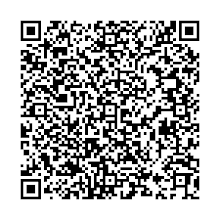Massachusetts is home to the Nation’s only remaining residential special education school to utilize aversive therapy, a very controversial application of behavioral methodology, on individuals with disabilities. The use of this practice on students with disabilities has been a critical issue in this state for over 25 years, with professionals in special education, psychology, human rights advocates, attorneys, parents and students themselves arguing over the question of its continued use in Massachusetts.
This practice is employed at The Judge Rotenberg Center (JRC) in Canton, Massachusetts, formerly known as The Behavior Research Institute, which was founded in Rhode Island in 1971 by Dr. Matthew Israel. Israel trained with B.F. Skinner, an American psychologist often credited as an original pioneer of behavioral science. JRC employs the use of aversive therapy, primarily electric skin shock, as a behavioral methodology to "treat" and discipline residents of the school. Other documented use of aversives at the school have included noxious substances, white noise, seclusion, restraint, pinching, spanking, muscle squeezes.
For years, the Judge Rotenberg Center has justified the use of aversive behavioral methods to discipline students with disabilities despite sharp criticism from colleagues in the field by contending that it is the last resort for the many residents of the school, many of whom are considered to have severe disabilities, and have been either rejected or dismissed by other schools. JRC employs this practice on the basis that the students - and as a result of being rejected by other educational establishments, their families - have no remaining options. JRC has a zero rejection and expulsion policy and claims the use of aversive therapy is the only answer for this population of students.
The use of aversive therapy at the Judge Rotenberg Center has been an issue before the Massachusetts Legislature and for numerous other agencies, according to their website, for many years, including attempts to shut JRC’s doors. The most recent hearings were held in 2009 before the Joint Legislative Committee on Children, Families and Persons with Disabilities. The last bills, in 2009, proposed to ban or impose significant restrictions on the use of aversive therapy for individuals with disabilities; as the previous years, JRC was allowed to continue the practice.
It is difficult to understand how the both the Massachusetts Legislature and JRC can continue to justify JRC's methodologies by their population alone, especially given that every other state in the nation, who clearly are also home to students with similar challenges, do not engage in - but rather, renounce - the use of aversive therapy. The field has shifted to the use of Positive Behavioral Support (PBS) and the use of aversive therapy is no longer considered ethical or humane. In fact, Massachusetts has stricter regulations enforcing the rights of both incarcerated individuals and animals than students with disabilities.
In 2007, JRC attracted much unwanted attention when a report from the Massachusetts Department of Early Education and Care detailed an incident in which two of the school’s residents were shocked upwards of 75 and 28 times, both requiring emergency medical attention, the result of a prank phone call from a former resident of the school. According to reports, JRC refused to cooperate in the subsequent investigation, destroying video evidence of the administration of the aversive procedures, despite being ordered to turn it over to the State Police. This incident brought increased concern and renewed attention to administrative protocol and oversight for the use of aversive therapy, and poses the question of whether staff at the school are adequately trained to administer the practice and in turn whether the State is in a position to oversee it.
The Massachusetts Legislature and the Department of Elementary and Secondary Education should seriously consider the appropriateness of such a practice given shifts in the field of Special Education over the past 25 years, the mandate of the Individuals with Disabilities Education Act for the utilization of evidence-based practice; the lack of training/qualifications of individuals at JRC to administer aversive therapy, and the challenges of oversight of the practice by State agencies, due to staffing, training and administrative issues.
However, where Massachusetts has failed, perhaps the Federal Government will prevail: last year, the United States Department of Justice (DOJ) commenced an investigation of the Canton, MA based JRC, to consider allegations by Mental Disability Rights International (MDRI) that the school's practice violates the United Nations Convention against Torture.
Stay tuned.
References
186 General Court of the Commonwealth of Massachusetts. (2004). C. 319 s. 1.
Gonnerman, Jennifer (2007). School of shock. Mother Jones Magazine. Retrieved
Israel, Matthew. (nd). History of
Massachusetts Department of Early Education and Care. (2007). Investigation report (incident #49037).
New York State Education Department. (2006) Observations and Findings of Out-of-State Program Visitation Judge Rotenberg Educational Center.
Wen, Patricia. (2008) Report says shock tapes destroyed against order. The
Wen, Patricia. (2010)






This sounds like a medieval and barbaric way to "treat" individuals with disabilities. I rarely hope that government intervenes in "educational" situations, but this, apparently, does warrant special attention.
ReplyDeletePB
Keep up your good work, Elizabeth, of bringing such barbarism to light. Perhaps this will be the year that the US Dept of Justice bans the unethical and inhumane use of aversive "therapy" (AKA torture) against students with disabilities. KJZ
ReplyDelete